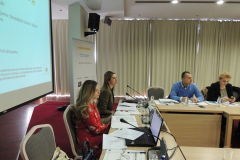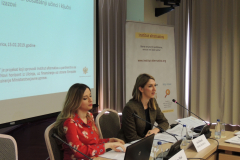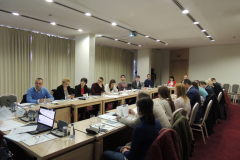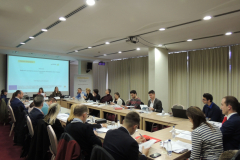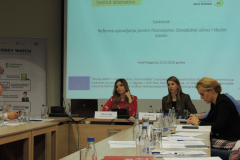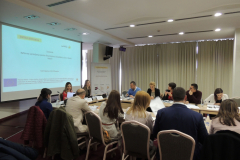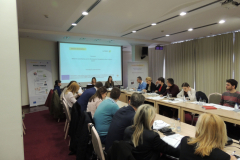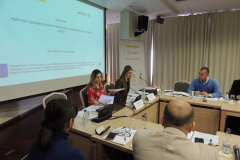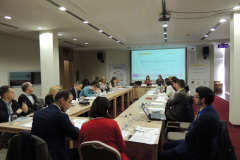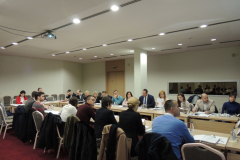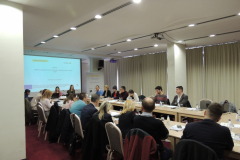Agency for Prevention of Corruption (APC), with a very general and vague explanation, denied access to the Decision establishing that the Democratic Party of Socialists (DPS) has been illegally financed during the election campaign for the 2016 Parliamentary Elections. The Agency, in the explanation, referred to the Law on Secrecy of Data, without stating which potentially harmful consequences would appear by publishing this document.
Upon our request for free access to information, the Agency issued a decision, sent to us yesterday, stating that the Agency is in the possession of “two acts containing determined facts” related to this case. The Agency also states that there is a “misdemeanour warrant, by which the Agency had imposed a sanction determined by law in the amount of 20,000 euros to the named political entity” and “the Decision by which the Agency found that this political entity violated the Law and therefore ordered to that political entity to return the funds to the Budget of Montenegro in the amount of 47,500 euro”.
The Agency “allowed” us to inspect the misdemeanour order in its office, even though we did not request this document at all, while the access to the very decision on violation of the Law, which we actually did request – was denied.
In the Decision’s rational, Agency states that the act is “marked by the degree of secrecy “internal”, in accordance with the Law on Secrecy of Data, and because at the same time Special Prosecutor’s Office is leading the procedure involving persons and data cited in the Agency’s Decision on return of funds to the budget”.
However, in its Decision, the Agency does not refer to any specific article of the Law on Secrecy of Data, on which it bases its arguments for marking this document with the degree of secrecy “internal”.
According to Article 3 of the Law on Secrecy of Data, secret information is “data that would have caused or could have adverse harmful consequences for the security and defence, foreign, monetary and economic politics of Montenegro, by revealing it to unauthorised person”.
It remains unclear on the basis of what the Agency estimated that the disclosure of the document would have caused harmful consequences and where does the need for the implementation of the Law on Secrecy of Data in this situation come from, since it does not prescribe obstacles to the parallel work of the Agency and the Special State Prosecutor’s Office.
No special laws regulating the work of the Special State Prosecutor’s Office and the Agency for the Prevention of Corruption prescribe any obstacle for the two institutions, in this case, to do their job transparently, unhindered and independently of one another.
Finally, the Agency’s decision refers to the DPS political entity, and on the other hand, the Special Prosecution does not prosecute against this party, but against its individual officials and members.
By hiding the decision of the Agency, the way in which it conducted the entire procedure remains questionable, as well as the suspicion that it again did not do its job well and that its investigation did not go further from what Đukanović had already publicly admitted on behalf of DPS. Under the public attention, the need for a re-control of the DPS and the repetition of the procedure might arise, which obviously neither Radonjić nor DPS wants.
Institute Alternative is going to file a lawsuit to the Administrative Court against this Agency’s decision and is going to continue to fight for the public’s right to know whether and how institutions do their job.
Ana Đurnić
Public policy researcher
Agency’s decision upon our FOI request is available here (only in Montenegrin).



